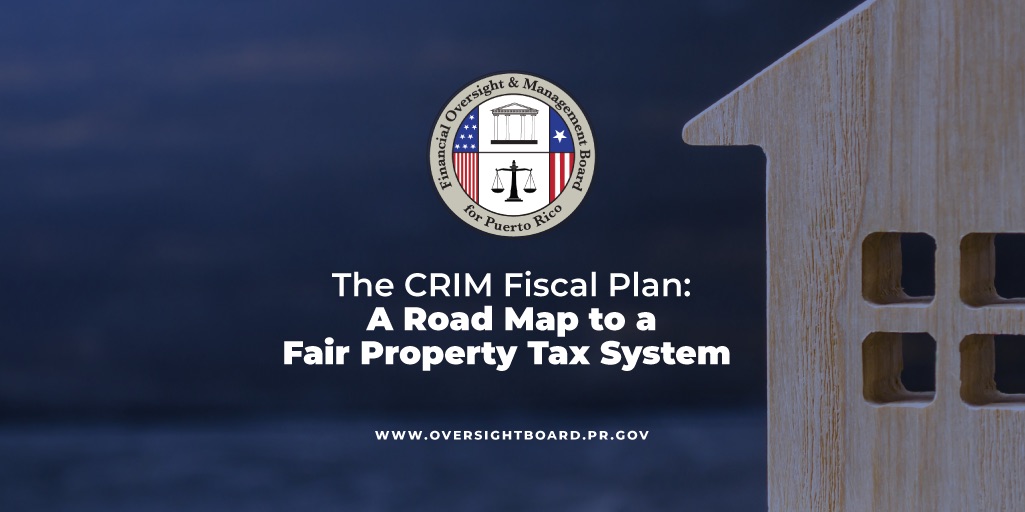A fairer, more efficient property tax system will provide municipalities with stable income. The new Fiscal Plan the members of the Oversight Board certified on May 18 outlines a path for Puerto Rico’s Municipal Revenue Collection Center (CRIM) to collect tax revenue from properties that were previously untaxed, updating appraisals to reflect improvements to properties, and making it easier for property owners to pay taxes – all without increasing tax rates.
Once fully implemented, these and other initiatives and measures should provide approximately $291 million in revenue each year and provide a stable outlook for CRIM and the municipalities through fiscal year 2028.
Real and personal property taxes are expected to remain relatively flat over the projection period, and baseline CRIM revenues are projected to decline if the measures in the Fiscal Plan are not implemented. However, the net effect of economic growth, tapering of Commonwealth support, and implementation of Act 53-2021 will provide stable revenues for CRIM if the Fiscal Plan measures are implemented.
Property taxes represent the most significant revenue stream to municipalities. That is why collecting those previously uncollected taxes is an important way for CRIM and the municipalities to improve their finances.
CRIM recently made headlines after sending notifications to about 240,000 properties that have not been properly registered. This is a key step towards CRIM’s goal of invoicing unregistered properties, which is projected to generate an additional $90 million in annual revenues for municipalities.
The Fiscal Plan includes new initiatives for CRIM to support municipalities in their goal of fostering economic development and fiscal sustainability, including municipal debt reprofiling and property tax reform. CRIM identified several potential enhancements to the property tax registry, including properties new to the tax rolls, new home improvements, and new swimming pools. These measures are in addition to the identification of non-appraised properties, properties with incorrect mailing addresses, and a targeted 8.4% improvement in property tax collection rates. By fiscal year-end 2023, CRIM projects that these measures will have resulted in $63 million of additional revenue every year.
In fiscal year 2022, CRIM executed a Tax Relief Program to settle past-due property tax obligations. The program was highly successful, collecting approximately $217 million in past-due property taxes. In the coming fiscal year 2024, CRIM plans to launch a new Default Management Office (DMO) to ensure an efficient process for the collection of property taxes and protect against non-compliance. DMO will promote fiscal sustainability for CRIM and the municipalities.





